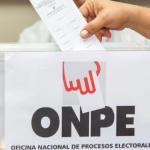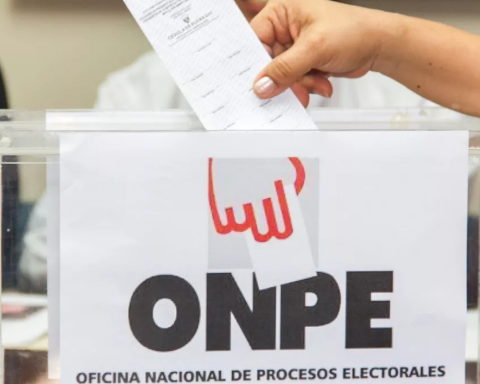There are less than three months until the end of the year and budget execution is one of the issues that generates the most uncertainty among investors and economic analysts, since the country is at a crossroads in which it must inject resources, via investment, to stop the slowdown, but you have to take care of spending, since there are serious cash problems and compliance with the fiscal rule is at risk.
Although the Ministry of Finance already made a spending cut of $20 billion a few months ago, for experts this is not enough due to the drop in tax collection and the income projections that were raised at the beginning of the year finally did not materialize. They complied, as happened with litigation and arbitration. Various accounts say that at least $30 billion more would have to be lowered for the current period.
Also read: Rents and inflation: a relationship that does not weaken the cost of living
And although the Government has already made it clear that it will not lower Budget 2024 spendingthe dynamics of budget execution would lead one to think that this decrease could be carried out via underexecution, since despite the fact that there is a large amount of money committed, the money that is actually being allocated for works and projects is low and at the rate Well, it would not be possible to use everything that is budgeted in its entirety.
Does not run
In fact, the Economic Research and Market Analysis team of the Bank of Bogotá recently presented a report in which it warns that investment spending is being the great sacrifice, according to the current balance of the General Budget of the Nation for 2024, with cut to September, in which an increase in commitments stands out, but the lag that has been seen during all year.
Colombian pesos
iStock
Regarding underexecution, they explained that this phenomenon would be occurring with nuances and would indirectly favor compliance with the fiscal rule, helping to counteract the downward surprise in tax revenues and honoring the commitments that acquired in the update of the Medium-Term Fiscal Framework, to reduce spending by $50.8 billion.
“If we assume that what was appropriated in the 2024 General Budget of the Nation was $408.1 billion; This means that of 100% of the assigned resources, a maximum of 87.6% could be executed to comply with the rule,” stated the Bank of Bogotá.
Having said this, they report that with three months remaining until the end of the year, the Government has committed 65.8% of the total appropriations (or permitted expenditure), exceeding the flying goal of 65.3%, calculated by the researchers, and casting doubt from this perspective on compliance with the Fiscal Rule, since it would go above than what is allowed if you want to stay within the agreed limits.
“However, the committed resources are not necessarily equivalent to the expenditure incurred by the Nation. According to the Autonomous Committee of the Fiscal Rule, commitments are the reserve of a part of the appropriations for a specific expense in the future, which is generated through acts and contracts issued by public bodies in their capacity to contract and commit the budget,” they added.
Here it is worth remembering that in the event of the contract not being executed, the resources in reserve are released and represent, in the accounts of the Nation, a kind of savings since the expense was not carried out, for which is not lost, but can be understood as a commitment that was left for later.
Also read: ‘I am concerned that these messages have the purpose of raising prices’: Minminas
With this on the table, for the Banco de Bogotá a more precise metric to take into account to monitor the spending made by the Government are the obligations, which are nothing more than the requirements of the payment owed by a public entity as a consequence of the fulfillment or perfection of the commitments acquired by the entity. That is, they are items that must be spent.
In this sense, they warn that, during the first nine months of the yearthe obligations were 54.2% of the total of the General Budget of the Nation, below the aforementioned limit of 59.4% for this time of year, calculated by the entity’s Economic Research team, which in turn They describe the balance as positive news for the sustainability of public finances, but negative news in terms of economic activity.

Bank of Bogotá
Courtesy
“Therefore, the gap between commitments and obligations suggests that the Government is presenting problems in execution, since, although it commits resources, these projects are not being carried out, reducing the Government’s payment obligations. However, this situation was not always the same so far this year, with the first semester being a positive period for execution,” they explained.
Investment blow
Although at first glance this underexecution seems good, since it allows compliance with the fiscal rule, the report warns that after the authorities’ announcement to cut spending, the area with the greatest sacrifice has been investment and that while the gap between commitments and obligations in the operating expenses have been atypically low, this decline is stronger in this line.
“In this way it is suggested that in operation the Government commits resources and generates payment obligations (executes proportionally), in investment spending the gap started low, but from the second quarter it began to increase to the point that in September it was close to of historical highs,” they stated in this regard.

Economic growth
iStock
In short, the Nation commits items to investbut it is not executing the contracts so as not to generate obligations and, thus, clean up public finances with the postponement of said resources.
“In this way, the consolidation of public finances, given budget restrictions that must be met to guarantee the macroeconomic stability of the country, would not only affect the level of activity in the second semester but also in the long term, given the relevance of the public investment on the formation of fixed capital in the country, especially infrastructure,” they concluded.
From the Bank of Bogotá they emphasized this is the consequence of the approval of a defunded budget (for 2024), while spending significantly and seeking to solve a tight cash situation. putting one more alert in the calculations made for the validity of 2025.


















